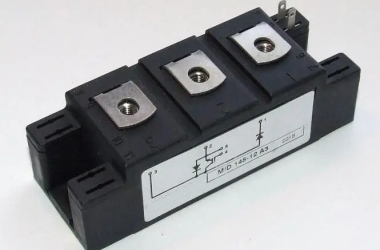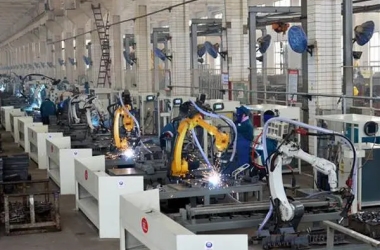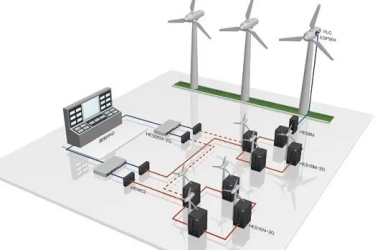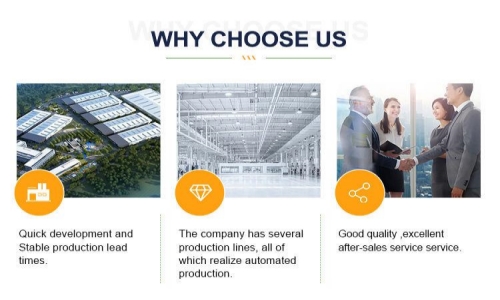THYRISTOR/DIODE MODULES (NON-ISOLATED TYPE)
| Features | Typical Application | PDDN-Notes |
|
|
|
MFG(AA) MFY(AA)
| Type | IT[AV]/IF[AV] [A] | VDRM/VRRM [V] | IDRM/IRRM [mA] | IGT [mA] | VGT [V] | IH [mA] | dv/dt [V/us] | di/dt [A/us] | ITSM [kA] | Datasheet | Offer |
|---|---|---|---|---|---|---|---|---|---|---|---|
| PDDN-MFx60 | 60 | 200-600 | 6 | 100 | 2.5 | 150 | 800 | 100 | 2.1 | Request | |
| PDDN-MFx80 | 80 | 200-600 | 8 | 100 | 2.5 | 150 | 800 | 100 | 2.7 | Request | |
| PDDN-MFx100 | 100 | 200-600 | 8 | 100 | 2.5 | 150 | 800 | 100 | 3.4 | Request | |
| PDDN-MFx130 | 130 | 200-600 | 12 | 150 | 2.5 | 200 | 800 | 100 | 4.5 | Request | |
| PDDN-MFx160 | 160 | 200-600 | 12 | 150 | 2.5 | 200 | 800 | 100 | 5.6 | Request | |
| PDDN-MFx200 | 200 | 200-600 | 15 | 150 | 2.5 | 200 | 800 | 100 | 7 | Request |
MFG MFY
| Type | IT[AV]/IF[AV] [A] | VDRM/VRRM [V] | IDRM/IRRM [mA] | IGT [mA] | VGT [V] | IH [mA] | dv/dt [V/us] | di/dt [A/us] | ITSM [kA] | Datasheet | Offer |
|---|---|---|---|---|---|---|---|---|---|---|---|
| PDDN-MFx50 | 50 | 800-1800 | 8 | 100 | 2.5 | 150 | 800 | 100 | 1.6 | Request | |
| PDDN-MFx100 | 100 | 800-1800 | 12 | 100 | 2.5 | 150 | 800 | 100 | 3.2 | Request | |
| PDDN-MFx150 | 150 | 800-1800 | 12 | 100 | 2.5 | 150 | 800 | 100 | 5.1 | Request | |
| PDDN-MFx200 | 200 | 800-1800 | 20 | 150 | 2.5 | 200 | 800 | 100 | 6.5 | Request | |
| PDDN-MFx250 | 250 | 800-1800 | 20 | 150 | 2.5 | 200 | 800 | 100 | 8.5 | Request | |
| PDDN-MFx300 | 300 | 800-1800 | 25 | 150 | 2.5 | 200 | 800 | 100 | 9.6 | Request |
Overview of Thyristor/Diode Module (Non-Isolated Type)
Thyristor/diode modules (non-isolated) are high-voltage, high-current, and fast-responsive electronic devices composed of thyristors and diodes used in power electronics and industrial automation. The structure includes a thyristor chip, a heat sink, and an insulating substrate. Current control is achieved by controlling the triggering voltage and current of the thyristor. Non-isolated designs require attention to safety and heat dissipation. Compared with other modules, it has the advantages of high voltage, high current, and fast response but requires high requirements for non-isolation and heat dissipation. In different working environments, performance may be affected, and specific conditions need to be considered.
Characteristics of Thyristor/Diode Module (Non-Isolated Type):
1. High voltage and high current capability: This module can withstand high voltage and high current, making it suitable for fields such as power electronics and industrial automation.
2. Quick response: Thyristors and diodes have fast switching characteristics, allowing modules to respond to changes in the circuit quickly.
3. Structural composition: The module mainly consists of thyristor chips, heat sinks, and insulation substrates, among which the thyristor chip is the core component of the module, responsible for current control.
4. Control function: By controlling the triggering voltage and current of the thyristor, the control of the current can be achieved, allowing the current to pass or break under specific conditions.
5. Non-isolated design: This module does not have isolated circuits, so special attention should be paid to safety issues when using it, and appropriate heat sinks should be equipped to ensure its regular operation.
6. Heat dissipation requirements: During operation, the module will generate a certain amount of heat, and appropriate heat dissipation measures are needed to ensure its stable operation.
7. Wide applicability: Due to its high voltage, high current, and fast response characteristics, thyristor/diode modules (non-isolated) are particularly suitable for power electronics applications that require efficient control and regulation.
Application of Thyristor/Diode Module (Non-Isolated Type)
1. Power control: Thyristor/diode modules can be used to coordinate the voltage and current in the power system, achieving precise control of power. They can be used for applications such as motor drive, reactive power compensation, active power filtering, etc., to improve the efficiency and stability of power systems.

(Diode modules)
2. Industrial automation: In the field of industrial automation, thyristor/diode modules are commonly used in motor control, automated production lines, robots, and other fields. They can achieve functions such as starting, stopping, speed regulation, and forward and reverse swivel of motors, improving the automation level and efficiency of industrial production.

(Automatic production line)
3. Renewable energy: In the field of renewable energy, for example, solar and wind power generation systems, thyristor/diode modules are used to convert direct current into alternating current, achieving energy conversion and grid connection. They can improve the power generation efficiency and stability of renewable energy systems.

(Wind power generation system)
4. Welding and cutting: Thyristor/diode modules are also widely used in the field of welding and cutting. They can provide stable high current and high voltage, meet the high requirements of welding and cutting processes, and improve production efficiency and product quality.

Company Profile
PDDN Photoelectron Technology Co., Ltd.(sales@pddn.com) is a high-tech enterprise focusing on the manufacturing, R&D, and sales of power semiconductor devices. Since its establishment, the company has been committed to providing high-quality, high-performance semiconductor products to customers worldwide to meet the needs of the evolving power electronics industry.
It accepts payment via Credit Card, T/T, West Union, and Paypal. PDDN will ship the goods to clients overseas through FedEx and DHL, by sea, or by air. Please inquire if you want a high-quality Thyristor/Diode Module (Non-Isolated Type); we will help.
Payment Methods of Thyristor/Diode Module (Non-Isolated Type)
L/C, T/T, Western Union, Paypal, Credit Card etc.
Shipment of Thyristor/Diode Module (Non-Isolated Type)
By sea, by air, by express, as customers request.
Storage Conditions for the Thyristor/Diode Module (Non-Isolated Type)
1. Temperature control: The module should be stored in a moderately warm and well-ventilated place to avoid exposure to high or low-temperature environments. The recommended storage temperature range is usually -40 ° C to +85 ° C.
2. Humidity control: High humidity may cause internal short circuits or corrosion of the module, so it is recommended to store the module in an environment with lower relative humidity, usually not exceeding 85% relative humidity.
3. Dust and pollution prevention: The module should be inventory in a clean and dust-free environment to combat dust and pollutants from entering the interior of the module and affecting its performance.
4. Avoid mechanical impact: During storage and transportation, modules should be protected from mechanical solid impact or vibration, which may cause damage to internal components or loose connections.
5. Packaging and labeling: Modules should be stored in appropriate packaging to prevent damage or misuse. At the same time, information such as the model, specifications, and storage conditions of the module should be indicated on the packaging.
6. Regular inspection and testing: After long-term storage, it is recommended to inspect and test the module before use to ensure its typical performance.
FAQ
Q1
How do you correctly select and use thyristor/diode modules (non-isolated) to meet specific power control needs?
Re:When selecting a thyristor/diode module (non-isolated type), specific requirements for power control, such as voltage, current range, frequency response, etc., need to be considered. Ensure that the selected module meets these requirements and evaluate its stability, reliability, and heat dissipation performance. When using, the manufacturer's recommended operating conditions should be followed, including control of trigger voltage and current, as well as heat dissipation measures. In addition, attention should be paid to the installation and connection of modules to ensure safety and stability.
Q2
How does a thyristor/diode module (non-isolated type) manage heat during operation to ensure its stability and reliability?
Re:Thermal management is crucial to ensuring the stability and reliability of thyristor/diode modules. Appropriate heat sinks should be selected to provide sufficient heat dissipation area and close contact with the module. Meanwhile, the working environment should be well-ventilated to avoid high temperatures and humidity. In addition, by controlling the operating temperature and current of the module, heat generation can be reduced, thereby improving its stability and reliability.
Q3
How are the triggering voltage and current of thyristor/diode modules (non-isolated) controlled?
Re:The triggering voltage and current of the thyristor/diode module are controlled through external circuits and controllers. Usually, trigger circuits provide appropriate trigger signals, such as pulse signals or DC signals, to maintain the conduction and disconnection of thyristors. The controller is responsible for monitoring and adjusting trigger signals to meet specific power control requirements.
Q4
What safety hazards does the non-isolated design of thyristor/diode modules (non-isolated) bring?
Re:Non-isolated thyristor/diode modules may pose safety hazards, such as the risk of electric shock and short circuits. Due to the lack of isolation in the internal circuits of the module, when external circuits malfunction or operate, it may cause current leakage or short circuit, which can damage the module or cause personal injury. Therefore, when using non-isolated modules, special attention should be paid to safety measures, such as taking appropriate isolation measures, using insulation tools, etc.
Q5
What are the advantages and disadvantages of thyristor/diode modules (non-isolated) compared to other types of power electronics modules?
Re:The advantages of thyristor/diode modules (non-isolated) lie in their high voltage, high current, and fast response capabilities, making them particularly suitable for power electronics applications that require efficient control and regulation. In addition, its simple structure and low cost are also one of its advantages. However, non-isolated designs may pose safety hazards and have high requirements for heat dissipation. Compared to other types of power electronic modules, such as isolated modules or PWM controllers, non-remote modules may be slightly inferior in terms of safety, stability, and control accuracy.
Opening Time
- Sunday – Friday: 09:00am – 10:30pm
- Saturday: 10:00am – 02:00pm
Contact Info.
- Email: sales@pddn.com
- Mobile: +86 18837951818
Contact Address
- Tongrun photoelectron, 3rd Floor, Nanshan Science Park, Nanshan District, Shenzhen, Guangdong, China
